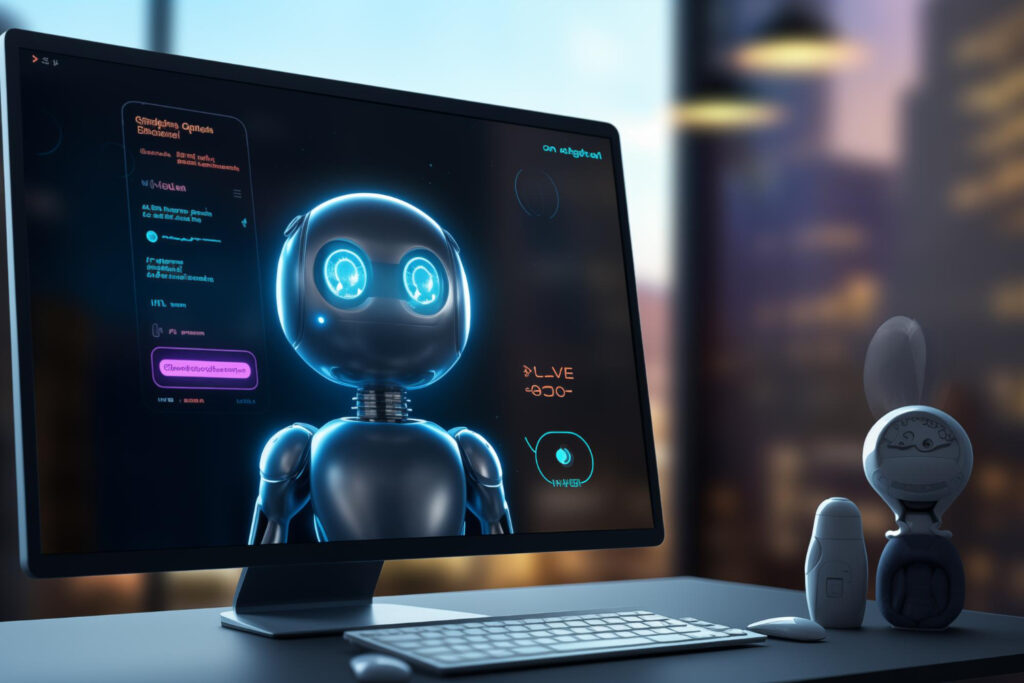

Last updated on

Since ChatGPT’s launch in November 2022, Generative AI, SGE, and AI Overviews have emerged as trending topics, offering Gen AI a user-friendly gateway to a broad market.
Since its introduction, the SEO industry has been grappling with predictions about how these developments will reshape search behavior and potentially impact organic traffic. Questions linger about the extent of potential declines in click-through rates.
Google aims to integrate Generative AI into search to enhance the quality of responses, stating:
“There are times when you need a quick answer but lack the time to piece together all the necessary information. With AI Overviews, Search simplifies this process for you.”
However, there has been significant debate and controversy surrounding this issue because, in practice, the outcomes have been somewhat unpredictable. This includes instances where advice such as the health benefits of running with scissors, taking a bath with a toaster, or adding glue to pizza to make the cheese stick have surfaced.
Google continues to experiment with AI Overviews (AIO). A recent study by SE Ranking on June 19 revealed a decrease in the frequency of AIO appearing in SERPs from 64% to 8%. Similarly, BrightEdge reports a decline from Google displaying AI on 84% of queries to just 15%.
Google is also exploring different formats for presenting AIO results in SERPs, with the latest update showcasing citations in the top carousel.
Gen AI is disrupting the SEO industry faster than any other development in its 25-year history. Key topics of discussion among SEO professionals include concerns about AI-generated content plagiarism and the need to adapt SEO strategies accordingly.
I had the opportunity to speak with ex-Googler Pedro Dias and asked him:
Here’s Pedro’s perspective:
“As I’ve mentioned previously, Google aims to function more like a personal assistant rather than a traditional librarian.
This distinction is crucial moving forward: rather than merely directing users to resources, Google intends to handle the tasks directly.
If we persist in producing content that only necessitates brief answers, we risk being overshadowed. It’s essential to prioritize content that addresses deeper user needs.
Google strives to fulfill the role of a personal assistant by providing immediate answers.
AI Overviews represents nothing more than a progression of instant answers.
For site owners targeting quick answers, it’s advisable to complement this strategy with substantive content that can engage readers deeply and, ideally, isn’t easily accessible to Google.
By taking these steps, you can safeguard the content assets you create.
It’s now more crucial than ever to cultivate dedicated communities aligned with our brands—not just settling for superficial snippets or instant responses.
Currently, the evolution and format of AIO are unpredictable. Google continues to alter how SERP results are displayed, akin to live beta testing.
However, AIO will undoubtedly influence search behaviors.
In the past, SEO revolved around ten blue links without instant answers. Users had to visit your website to find answers, leading to substantial traffic for straightforward queries.
However, this traffic type holds little value because these visitors are not your customers; they belong to Google.
Our focus should be on distinguishing between instant answer traffic and genuine users who seek to engage deeply with our content. This is where our efforts should be directed.
We need to prioritize creating content for those who seek more than just summaries or quick answers—individuals who desire to delve into the details to enhance their understanding.
Similar to how the internet disrupted the music and publishing industries, we’re on the brink of another transformative shift. Adapting to these changes is inevitable; it’s a matter of when, not if.”
I asked Pedro:
“If we aim to adopt this new approach, it means shifting from a mindset of ‘grabbing all available traffic’ to a more selective one—using Google to attract targeted traffic that integrates into our own community. This represents a significant shift for many. How can businesses effectively leverage Google in this regard?”
Pedro responded:
“Assessing how much ‘discovery’ traffic Google might redirect will vary across different industries. For instance, in fields like law or accounting, where expertise and understanding of intricate regulations are crucial, AI can now explain broad legislative topics. However, for specific scenarios, consulting a specialist remains essential.
AI can provide comprehensive information on broader topics, but for detailed insights, the expertise of a human specialist remains indispensable.
In our role as SEO professionals, we can craft content that addresses overarching concepts accessible to AI. For specific scenarios and inquiries, we should develop more extensive, detailed content.
This detailed content should be kept exclusive, not accessible to Google or AI, and reserved for our community or clients.
Every business will need to decide where to draw the line between freely accessible content and premium, gated content.
AI has introduced a greater distinction between general knowledge and specialized expertise, where specialists remain crucial as sources of detailed information.
The middle ground is poised to fade away.
Professionals will continue to be essential because industries depend on their expertise and the research they conduct. Others will simply occupy different roles.
Users will divide into those seeking basic information from AI and those desiring specialized, in-depth knowledge from specialists.
Adapting to this landscape and devising a strategy accordingly is key to navigating this shift.”
I anticipate that Google will continue to experiment extensively before fully integrating AI into SERPs and SEO.
Amidst this period of rapid change, it’s crucial to focus on timeless principles that remain constant. At the core of these principles is how brands establish direct relationships with their users.
For SEO professionals, shifting away from chasing high-volume keyword traffic towards crafting user journeys and delivering relevant content will be a significant adjustment.
The traditional approach of garnering substantial traffic through high-volume keywords is becoming obsolete. Moving forward, greater effort will be required to secure fewer but more meaningful clicks.
I extend my gratitude to Pedro Dias for sharing his insights and joining me as a guest on IMHO.
Original news from SearchEngineJournal